
Most common types of employment discrimination
Most common types of employment discrimination
Every year, hundreds of thousands of American workers contact the U.S. Equal Employment Opportunity Commission (EEOC), the federal agency tasked with investigating workers' complaints of job discrimination—being treated differently on the basis of gender, race, religion, or other fundamental parts of who workers are. Outside of labor unions, the EEOC is generally the only way for an average worker who believes they've been discriminated against to take action against their employer. (Suing an employer in court often requires first filing an EEOC complaint.) Filing such a complaint is arduous and can take months or years—and it's more difficult and takes a longer time without a lawyer.
In 2018, the EEOC took 554,000 calls and emails and more than 200,000 inquiries, but ended up taking action on only fraction of them. More than 100,000 cases are closed annually by the EEOC and its state and local counterparts, according to the Center for Public Integrity, but only 18% of the workers in those cases received some kind of action, which sometimes, but doesn't necessarily, includes money.
While laws have made many of the various manifestations of workplace discrimination illegal, a successful EEOC complaint requires thorough documentation to prove the discrimination took place in a way recognized by the sometimes narrow interpretations of those laws. Many employers make use of forced arbitration, a tactic forcing employees to waive the right to sue their employers as a condition of their employment. Forced arbitration has the effect of stopping workers facing discrimination from taking action, and especially affects women and people of color—demographics already at greater danger of facing workplace discrimination in the first place.
Job discrimination greatly burdens employees faced with harmful and abusive working environments. Stacker compiled a list of the most common types of employment discrimination using data from the Center for Public Integrity. The data spans 2010 to 2017 and was released in 2019. Types of discrimination are ranked by the number of cases with relief. Relief, in this case, are remedies to the cases in question, such as compensation for damages, back pay, reinstatement, proper training, and reasonable accommodations for the position. 17.6% of closed cases resulted in relief. Categories with "other" in the name were excluded.
Read on to learn more about the most common types of employment discrimination.

#50. Drug addiction
- Cases with relief: 228 (18.6% of closed cases)
- Monetary benefits: 157 (12.8% of closed cases)
- Meritorious cases: 54 (4.4% of closed cases)
- Closed cases: 1,223 (89.6% of all cases)
Although recent medical research now shows that drug addiction is a chronic illness, its stigma often prevents people addicted to drugs from gaining access to advocacy and proper treatments, and can lead to housing discrimination, employment discrimination, and more. The Confidentiality of Substance Use Disorder Patient Records rule allows those with substance abuse disorders to seek confidential treatment for their illness.

#49. Genetic information discrimination
- Cases with relief: 230 (15.0% of closed cases)
- Monetary benefits: 159 (10.4% of closed cases)
- Meritorious cases: 101 (6.6% of closed cases)
- Closed cases: 1,530 (82.6% of all cases)
This type of discrimination occurs when an employer or insurance company treats a person differently solely because of their genetic information. An example of this includes people with a genetic mutation passed down to them who are at risk of inheriting the genetic disorder. In 2016, a company informed a man that he would not receive a job if he did not fill out three years of health history. This violates GINA, or the Genetic Information Nondiscrimination Act, an act passed in 2008 that protects people from this type of discrimination.

#48. Allergies
- Cases with relief: 232 (18.2% of closed cases)
- Monetary benefits: 156 (12.3% of closed cases)
- Meritorious cases: 38 (3.0% of closed cases)
- Closed cases: 1,273 (86.0% of all cases)
In a given year, roughly 50 million Americans live with allergies, considered the sixth leading cause of chronic illness. Those with allergies are protected under the Americans with Disabilities Act (ADA) from discrimination in housing and public locations like stores, restaurants, and hotels, which are required to offer allergy-friendly environments free of known allergen triggers.

#47. Religion—Seventh-day Adventist
- Cases with relief: 242 (23.5% of closed cases)
- Monetary benefits: 138 (13.4% of closed cases)
- Meritorious cases: 62 (6.0% of closed cases)
- Closed cases: 1,029 (85.4% of all cases)
This religious organization has a history of being discriminated against, and its fair share of cases, in particular tied to having work responsibilities relieved on the Sabbath day, or Saturday. One well-known example is a case against Kellogg Co., a cereal company, whose supervisors refused to allow time off to two workers who identify with the religion and its practices. The U.S. Court of Appeals for the Tenth Circuit in Denver reversed an earlier decision by a U.S. District Court that ruled in favor of the cereal company, giving a win to the two Seventh-Day Adventists who claimed the company violated Title VII of the Civil Rights Act.
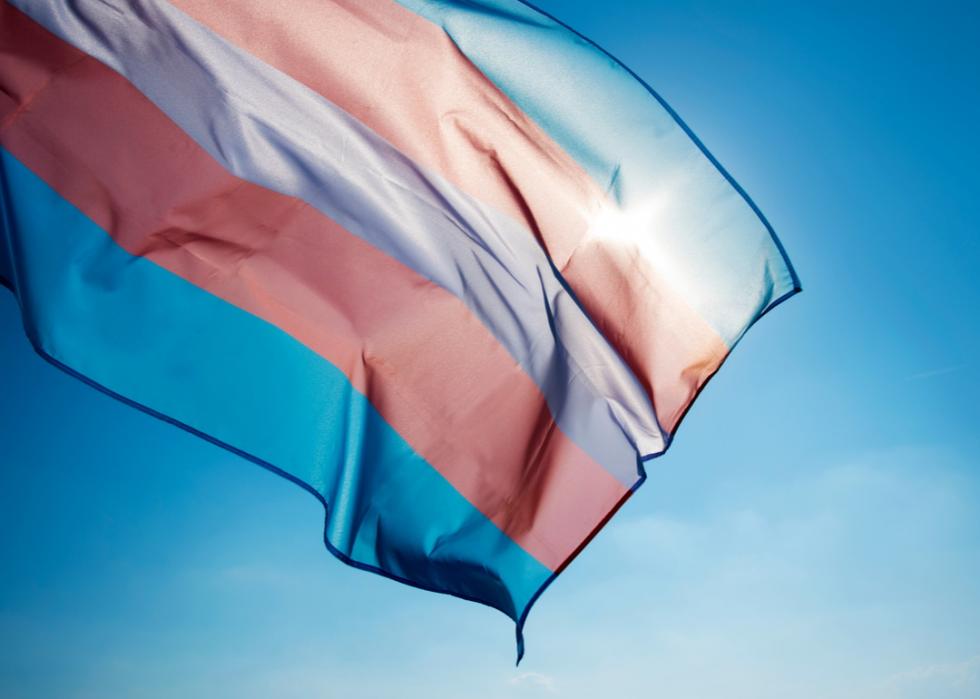
#46. Sex-Gender identity / transgender
- Cases with relief: 313 (19.1% of closed cases)
- Monetary benefits: 213 (13.0% of closed cases)
- Meritorious cases: 78 (4.8% of closed cases)
- Closed cases: 1,639 (78.7% of all cases)
Title VII of the Civil Rights Act prohibits wrongdoing toward people because of their sexual orientation and gender identity. In June 2020 the United States Supreme Court ruled that transgender workers are also protected under the law.

#45. Alcoholism
- Cases with relief: 324 (17.4% of closed cases)
- Monetary benefits: 210 (11.3% of closed cases)
- Meritorious cases: 36 (1.9% of closed cases)
- Closed cases: 1,859 (87.7% of all cases)
Alcoholism is protected under the Americans with Disabilities Act. The protection doesn’t cover individuals unable to perform their jobs due to alcoholism, but it does protect workers with a history of alcoholism or those living with the illness. In some cases, employers are required to offer leniencies for those living with alcoholism to seek help, as in the form of counseling or meetings related to recovery.

#44. National origin-East Indian
- Cases with relief: 325 (13.9% of closed cases)
- Monetary benefits: 225 (9.6% of closed cases)
- Meritorious cases: 31 (1.3% of closed cases)
- Closed cases: 2,345 (86.4% of all cases)
Title VII protects people from discrimination against national origin, meaning no one is to be treated unfairly or differently because of their birthplace, ancestors' origin, ethnicity, accent, marriage, or association with a particular nationality. The historic and ongoing discrimination against Asian Americans in the United States recently came into focus when Asian citizens were used as scapegoats for the COVID-19 pandemic.

#43. Religion-Catholic
- Cases with relief: 336 (15.8% of closed cases)
- Monetary benefits: 210 (9.9% of closed cases)
- Meritorious cases: 37 (1.7% of closed cases)
- Closed cases: 2,126 (89.3% of all cases)
More than 30 million Europeans immigrated to the United States between 1840 and 1924, many of whom were Catholic immigrants escaping significant discrimination and adversity. Since then, it has become a federal crime to discriminate against Catholic people for their religion and religious practices. However, teachers at church-run schools have fewer protections, because those schools aren't subject to federal and state anti-discrimination laws.

#42. Intellectual disability
- Cases with relief: 352 (19.9% of closed cases)
- Monetary benefits: 253 (14.3% of closed cases)
- Meritorious cases: 37 (2.1% of closed cases)
- Closed cases: 1,772 (89.2% of all cases)
There are millions of Americans with intellectual disabilities, which covers a diverse array of impairments, from limitations with problem solving, learning, communicating, motor skills, or social ability. Studies show that stereotypes for people with intellectual disabilities include, but are not limited to, the idea that such people do not have feelings or emotions, do not feel pain, do not make worthy contributions to society, and more.

#41. Religion-Protestant
- Cases with relief: 364 (15.4% of closed cases)
- Monetary benefits: 247 (10.5% of closed cases)
- Meritorious cases: 41 (1.7% of closed cases)
- Closed cases: 2,357 (90.3% of all cases)
People practicing many religions face discrimination, including those of the Protestant religion, the second-largest group in the Christian faith. Workplace discrimination on the basis of religion often manifests in harassment around a person's faith. The EEOC notes that harassment doesn't mean "simple teasing, offhand comments, or isolated incidents that aren't very serious," but rather severe or frequent treatment that creates a hostile work environment

#40. HIV
- Cases with relief: 389 (21.6% of closed cases)
- Monetary benefits: 295 (16.4% of closed cases)
- Meritorious cases: 77 (4.3% of closed cases)
- Closed cases: 1,800 (84.2% of all cases)
Supreme Court case Bragdon v. Abbott ruled that HIV qualifies as a disability under the ADA. People with HIV face ongoing stigma, in workplaces and in the culture at large. According to the EEOC, 155 people brought forward workplace discrimination claims based on their HIV status in 2019. That makes up 0.6% of ADA claims, with people with HIV making up 0.3% of the U.S. population.

#39. Kidney impairment
- Cases with relief: 421 (22.5% of closed cases)
- Monetary benefits: 307 (16.4% of closed cases)
- Meritorious cases: 56 (3.0% of closed cases)
- Closed cases: 1,872 (85.8% of all cases)
Discrimination plays an important factor in health disparities that exist in the U.S. Kidney impairment is no different. Many may not know that having a kidney disease can create work limitations, including physical limitations, need for medical leave, medical emergencies, and loss of hours. While an employer can ask for a medical certification that maps out an employee’s kidney illness and its conditions, it is illegal to punish the employee for taking leave to have surgery or to begin treatment.
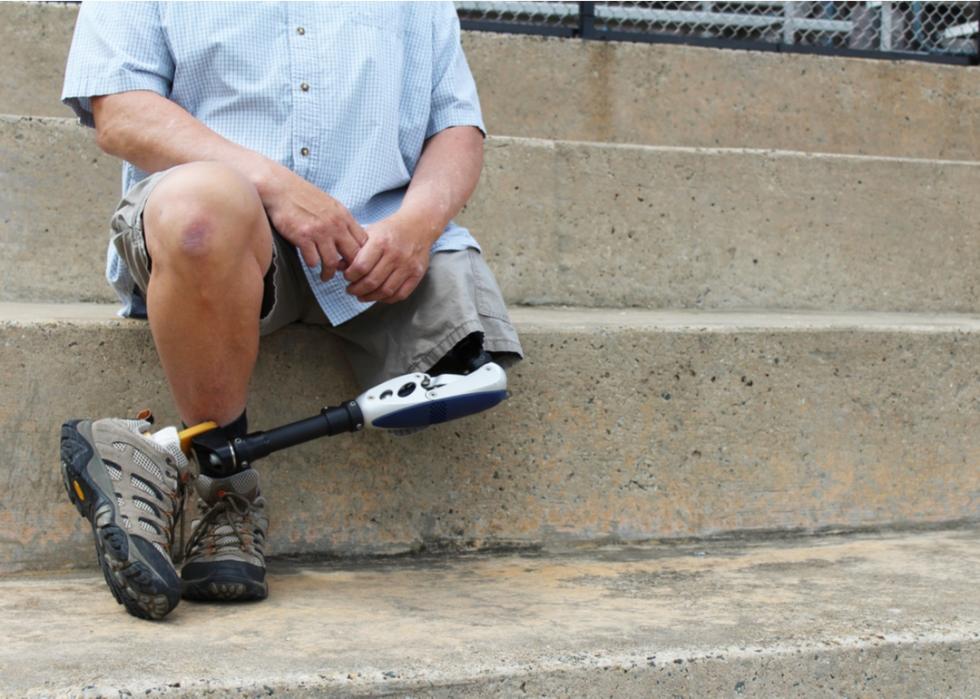
#38. Missing digits / limbs
- Cases with relief: 494 (23.1% of closed cases)
- Monetary benefits: 339 (15.9% of closed cases)
- Meritorious cases: 34 (1.6% of closed cases)
- Closed cases: 2,136 (90.5% of all cases)
Men younger than 20 or older than 65 years old are statistically most likely to face workplace discrimination over a missing limb or limbs. This form of discrimination is also more prevalent in southern states, at companies with fewer than 200 employees, and in industries like manufacturing and construction, according to a 2005 study.

#37. Religion-Jewish
- Cases with relief: 543 (17.2% of closed cases)
- Monetary benefits: 377 (11.9% of closed cases)
- Meritorious cases: 67 (2.1% of closed cases)
- Closed cases: 3,164 (87.5% of all cases)
Anti-Semitic ideals and discrimination have existed for centuries and continue to this day. In America, anti-Semitism is on the rise: The Anti-Defamation League's annual audit found a 12% increase in anti-Semitic incidents in 2019, "the highest number on record since ADL began tracking antisemitic incidents in 1979."

#36. Brain/head injury (traumatic)
- Cases with relief: 546 (19.7% of closed cases)
- Monetary benefits: 385 (13.9% of closed cases)
- Meritorious cases: 48 (1.7% of closed cases)
- Closed cases: 2,770 (86.8% of all cases)
Traumatic brain injury, or TBI, is when someone suffers an injury to the head that affects the function of the brain. The ADA protects individuals with these types of injuries from discrimination in employment, education, public spaces, government services, and transportation. In many cases, workplaces must provide building accessibility and allow service animals for those living with TBIs.

#35. Race-American Indian/Alaska Native
- Cases with relief: 552 (13.4% of closed cases)
- Monetary benefits: 374 (9.1% of closed cases)
- Meritorious cases: 55 (1.3% of closed cases)
- Closed cases: 4,106 (90.0% of all cases)
Around one-third of Native Americans report experiencing discrimination in the workplace when seeking jobs, getting promotions, or earning equal pay, according to a poll by NPR, the Robert Wood Johnson Foundation, and the Harvard T.H. Chan School of Public Health. Slightly more than one-third reported in the same poll that they "were on the receiving end of slurs or negative comments based on race."

#34. Multiple sclerosis
- Cases with relief: 601 (22.7% of closed cases)
- Monetary benefits: 431 (16.2% of closed cases)
- Meritorious cases: 77 (2.9% of closed cases)
- Closed cases: 2,653 (86.9% of all cases)
In 2019, the EEOC filed a lawsuit against Life Care Medical Services and claimed an employee was terminated after requesting leave for reasonable accommodations for his multiple sclerosis, thus violating the ADA. Many people continue to work despite the challenges of living daily with MS, a chronic immune disease.

#33. Asthma
- Cases with relief: 682 (20.9% of closed cases)
- Monetary benefits: 470 (14.4% of closed cases)
- Meritorious cases: 89 (2.7% of closed cases)
- Closed cases: 3,257 (86.1% of all cases)
As many as one in 13 people have asthma, a condition affecting the lungs and breathing, according to the CDC. African Americans die at a higher rate from the disease than other demographics. Those who have asthma may be at a higher risk of the coronavirus turning into a severe illness, according the CDC.

#32. Gastrointestinal
- Cases with relief: 691 (21.1% of closed cases)
- Monetary benefits: 511 (15.6% of closed cases)
- Meritorious cases: 70 (2.1% of closed cases)
- Closed cases: 3,279 (87.7% of all cases)
Gastrointestinal disorders, ranging in severity, refer to issues in the digestive tract that can cause major health problems requiring special job accommodations. The ADA protects the rights of employees with these disorders. However, an employee may also be restricted from performing certain tasks such as handling food.
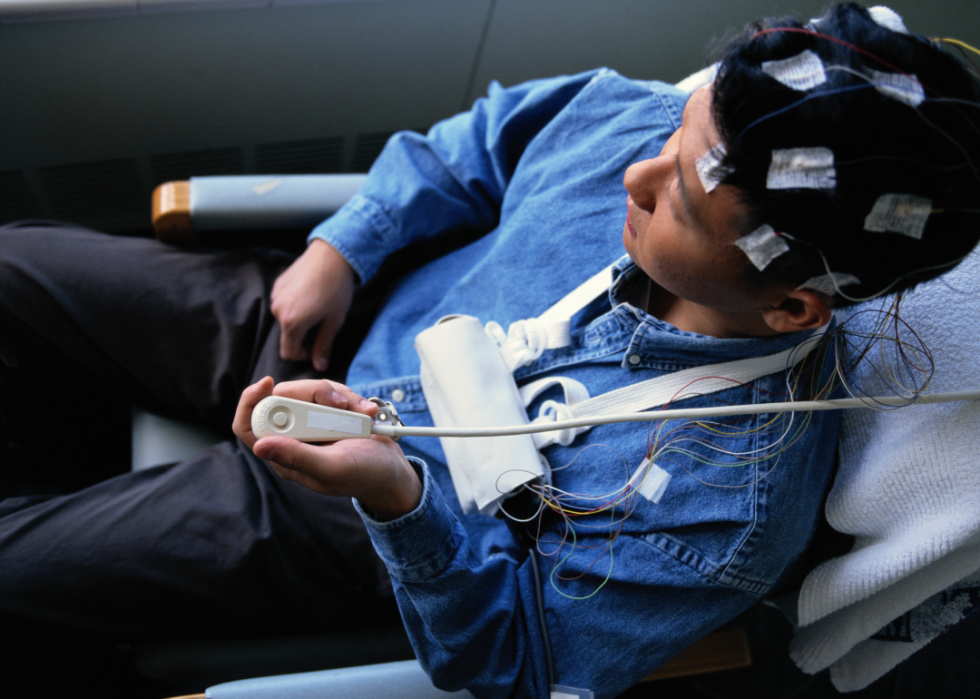
#31. Epilepsy
- Cases with relief: 734 (22.9% of closed cases)
- Monetary benefits: 524 (16.4% of closed cases)
- Meritorious cases: 97 (3.0% of closed cases)
- Closed cases: 3,203 (86.6% of all cases)
More Americans have epilepsy, a seizure disorder responsible for abnormal brain cell activity, than ever before, accordion to the CDC: up from 2.3 million adults in 2010 to 3 million in 2015. Several laws prevent discriminatory practices against those with epilepsy, including the ADA, ADA Amendments Act of 2008, Family Medical Leave Act, Rehabilitation Act of 1973, and Workforce Investment Act.

#30. Relationship/association
- Cases with relief: 805 (18.0% of closed cases)
- Monetary benefits: 633 (14.2% of closed cases)
- Meritorious cases: 47 (1.1% of closed cases)
- Closed cases: 4,461 (86.3% of all cases)
Federal and state laws prohibit the discrimination of people and protect their right to identify as they please. These same laws also prohibit association discrimination, such as treating an employee different because of their relationships. This isn’t limited to domestic relationships: An employer cannot discriminate against any form of relationship, such as as someone who volunteers for an HIV clinic.

#29. National origin-Arab, Afghani, or Middle-Eastern
- Cases with relief: 813 (15.2% of closed cases)
- Monetary benefits: 606 (11.3% of closed cases)
- Meritorious cases: 92 (1.7% of closed cases)
- Closed cases: 5,351 (86.8% of all cases)
People whose national origin is Middle Eastern, Afghani, or Arab face discrimination in many facets of their lives, including in the workplace. One study found discrimination in hiring practices when the applicant had an Arab-sounding name vs. a white-sounding name.

#28. Learning disability
- Cases with relief: 873 (20.4% of closed cases)
- Monetary benefits: 561 (13.1% of closed cases)
- Meritorious cases: 78 (1.8% of closed cases)
- Closed cases: 4,284 (87.5% of all cases)
Adults with learning disabilities in the workplace face unique challenges daily. They may have difficulty reading, writing, spelling, reasoning, or organizing information. Many adults with learning disabilities were never diagnosed and thus did not receive the information needed to cater to the disability. Those living with learning disabilities are protected by the ADA against employment discrimination.

#27. Vision impairment
- Cases with relief: 1,047 (20.7% of closed cases)
- Monetary benefits: 696 (13.8% of closed cases)
- Meritorious cases: 149 (3.0% of closed cases)
- Closed cases: 5,050 (86.9% of all cases)
Under federal law, an employer cannot refuse to hire or terminate an employee for a visual impairment unless the loss of sight prevents the employee from performing their job duties. Despite this, vision impairment discrimination is still a concern for many in America, but studies show that the EEOC cannot prove it in a majority of cases. Many workplaces are required to modify their programs to make them accessible, with job training, testing for website accessibility, and more.

#26. Equal pay-female
- Cases with relief: 1,149 (19.0% of closed cases)
- Monetary benefits: 917 (15.1% of closed cases)
- Meritorious cases: 251 (4.1% of closed cases)
- Closed cases: 6,057 (82.4% of all cases)
The Equal Pay Act federally mandates equal pay for men and women in all forms of payment, from overtime to stock options. Despite this, the gender gap in America still exists, with women making 81 cents to every man's dollar. A lawsuit brought against Google in 2017 alleged the tech company paid their women counterparts less, which, if proven, would mean they've done this to 10,800 women who have been employed by Google since September 2013.

#25. Post-traumatic stress disorder
- Cases with relief: 1,177 (17.2% of closed cases)
- Monetary benefits: 904 (13.2% of closed cases)
- Meritorious cases: 129 (1.9% of closed cases)
- Closed cases: 6,855 (85.3% of all cases)
Post-traumatic stress disorder (PTSD) is a condition where a person has difficulty recovering after experiencing or witnessing a traumatic moment in their lives. It is illegal for companies to discriminate based on PTSD in any way, whether forcing sick leave or denying employment. Employers may have a legal right to reasonable alternative accommodations for job duties.

#24. Religion-Muslim
- Cases with relief: 1,227 (16.8% of closed cases)
- Monetary benefits: 866 (11.9% of closed cases)
- Meritorious cases: 223 (3.1% of closed cases)
- Closed cases: 7,301 (83.5% of all cases)
After September 11, the EEOC saw a 250% increase in cases of religion-based discrimination against Muslim people, and years later, those complaints are disproportionately high. According to the Pew Research Center, 82% of American adults say Muslims are subject to at least some bias in the U.S. today.
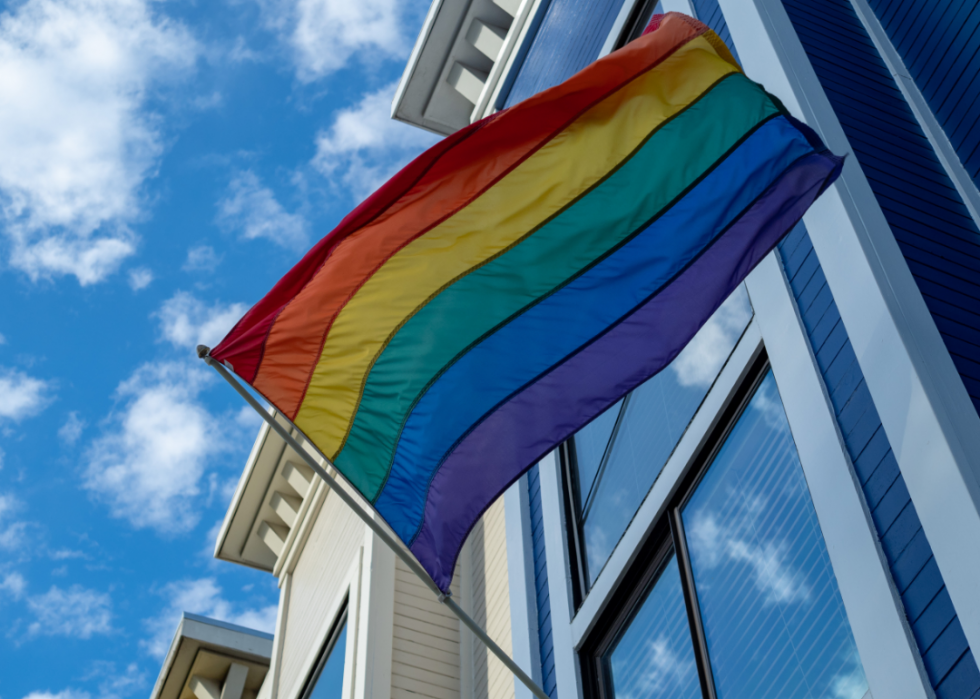
#23. Sex-Sexual orientation
- Cases with relief: 1,358 (16.9% of closed cases)
- Monetary benefits: 949 (11.8% of closed cases)
- Meritorious cases: 121 (1.5% of closed cases)
- Closed cases: 8,025 (81.9% of all cases)
Employees are protected from discrimination based on sexual orientation or gender identity under the Supreme Court decision Bostock v. Clayton County, which addressed protection under Title VII of the Civil Rights Act of 1964. Before this, the laws surrounding this type of discrimination were in bits and pieces, as several states prohibited harassment, and bias in employment decisions only covered public employees.

#22. Race-Asian
- Cases with relief: 1,378 (13.1% of closed cases)
- Monetary benefits: 957 (9.1% of closed cases)
- Meritorious cases: 112 (1.1% of closed cases)
- Closed cases: 10,519 (87.3% of all cases)
Since the coronavirus in 2020 began, people of Asian descent have seen a gradual increase in discrimination. After President Trump described the virus as “the China virus,” some employers harbored a bias toward their Asian American workers, especially those who had recently visited their home country, even if they were not of Chinese descent. Despite the president’s words, Asian workers have the right to work without fear of discrimination.

#21. Manic depression (bi-polar)
- Cases with relief: 1,428 (19.4% of closed cases)
- Monetary benefits: 986 (13.4% of closed cases)
- Meritorious cases: 129 (1.7% of closed cases)
- Closed cases: 7,374 (88.2% of all cases)
The level and severity of bipolar disorder can vary, and certain cases are more severe than others. Nearly 14 million Americans experience some form of bipolar disorder. If an employer fires an employee based solely on this disability, they may face an employment discrimination charge. The Equality Act of 2010 protects people from this type of discrimination.

#20. Race-Bi-racial / multi-racial
- Cases with relief: 1,455 (15.4% of closed cases)
- Monetary benefits: 922 (9.8% of closed cases)
- Meritorious cases: 84 (0.9% of closed cases)
- Closed cases: 9,450 (90.8% of all cases)
Overall, most multiracial adults proclaim pride in their racial background and believe being multiracial is an advantage in their lives. However, 33% of multiracial individuals claim to have been mistreated by an employer in hiring, pay, or promotion, according to a Pew Research study. This falls under race discrimination under Title VII of the Civil Rights Act of 1964.
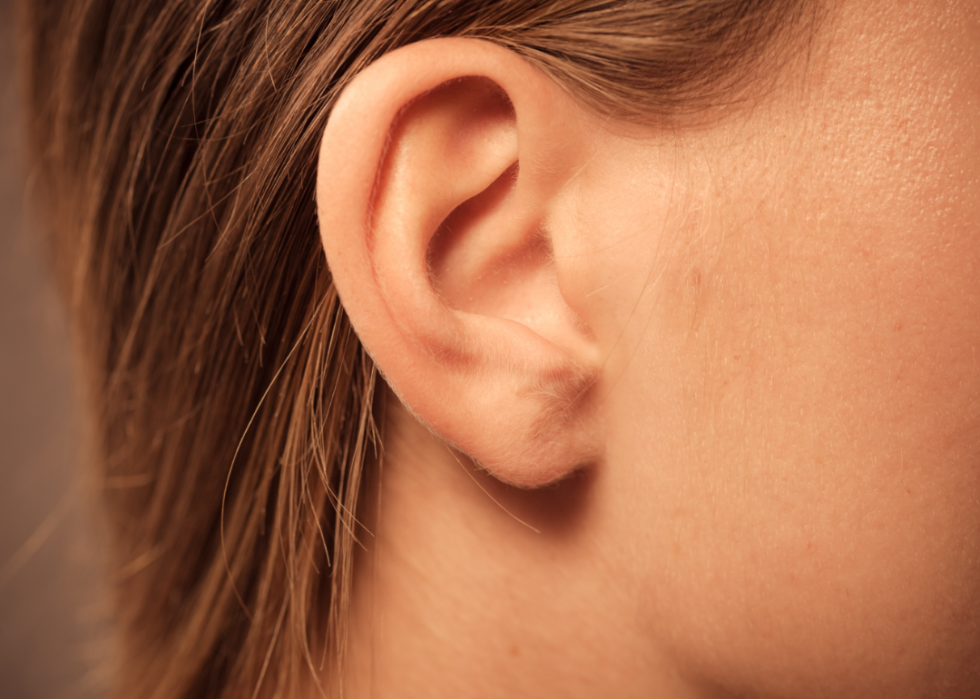
#19. Hearing impairment
- Cases with relief: 1,530 (21.7% of closed cases)
- Monetary benefits: 1,044 (14.8% of closed cases)
- Meritorious cases: 218 (3.1% of closed cases)
- Closed cases: 7,047 (84.5% of all cases)
The ADA protects people who are hearing impaired from discrimination in the workplace. This applies to employees who lost their hearing while on the job. Every employee has a right to communication access and legally can ask for reasonable accommodations.

#18. Heart/cardiovascular
- Cases with relief: 1,880 (21.9% of closed cases)
- Monetary benefits: 1,334 (15.5% of closed cases)
- Meritorious cases: 230 (2.7% of closed cases)
- Closed cases: 8,591 (87.2% of all cases)
Like the other disabilities on this list, heart/cardiovascular discrimination in the workplace is illegal. While heart conditions can prevent a worker from completing certain physical tasks, employers may not discriminate so long as that employee is still able to do the basic requirements of their job.

#17. Cancer
- Cases with relief: 2,074 (24.9% of closed cases)
- Monetary benefits: 1,422 (17.1% of closed cases)
- Meritorious cases: 284 (3.4% of closed cases)
- Closed cases: 8,317 (85.3% of all cases)
There are many determining factors to a person’s decision to continue working after a cancer diagnosis. Regardless of the reason, an employee has the legal right to reasonable accommodations throughout their treatment. It is also illegal to demote an employee, overlook an employee for a position, or reject a promotion because of their illness.

#16. Diabetes
- Cases with relief: 2,253 (20.4% of closed cases)
- Monetary benefits: 1,587 (14.4% of closed cases)
- Meritorious cases: 281 (2.5% of closed cases)
- Closed cases: 11,047 (86.7% of all cases)
In the U.S., individuals with diabetes have the legal right to work without discrimination under federal and state laws. Unless applying for a job that requires a medical examination or history for all employees, an employee does not need to tell an employer about their illness. Some employers, when interviewing potential employees, try to fudge the law by asking questions about health—individuals need to be alert to fishing questions during the interview process.

#15. National origin-Mexican
- Cases with relief: 2,357 (17.3% of closed cases)
- Monetary benefits: 1,554 (11.4% of closed cases)
- Meritorious cases: 250 (1.8% of closed cases)
- Closed cases: 13,618 (88.9% of all cases)
A 2017 survey by NPR found 33% of adults identifying as Latino or Hispanic had experienced offensive comments or negative assumptions about their race or ethnicity while at work. These criticisms include complaints about speaking Spanish, or being told to go back to their home country. But, just like many on this list, those who identify as Mexican or Latino have the right to file discrimination complaints under Title VII.

#14. Depression
- Cases with relief: 3,242 (19.6% of closed cases)
- Monetary benefits: 2,284 (13.8% of closed cases)
- Meritorious cases: 304 (1.8% of closed cases)
- Closed cases: 16,544 (87.1% of all cases)
In 2011, the EEOC reported that nearly 16% of the 25,742 charges of discrimination based on disability cited depression, manic depressive disorder, or anxiety disorders. If an individual suffers from depression, knowing their rights in the workplace can make a substantial difference in coping and dealing with their everyday work duties. Despite the stigmas that are attached to mental health, help is available and equal treatment is mandatory.

#13. Record of disability
- Cases with relief: 3,515 (21.0% of closed cases)
- Monetary benefits: 2,704 (16.2% of closed cases)
- Meritorious cases: 394 (2.4% of closed cases)
- Closed cases: 16,707 (87.3% of all cases)
A record of disability is a history of mental or physical impairment that may or may not have limited life activities in the past, but may not be affecting the individual currently. The ADA doesn’t only protect those with a disability; it protects those with a record of disability as well.
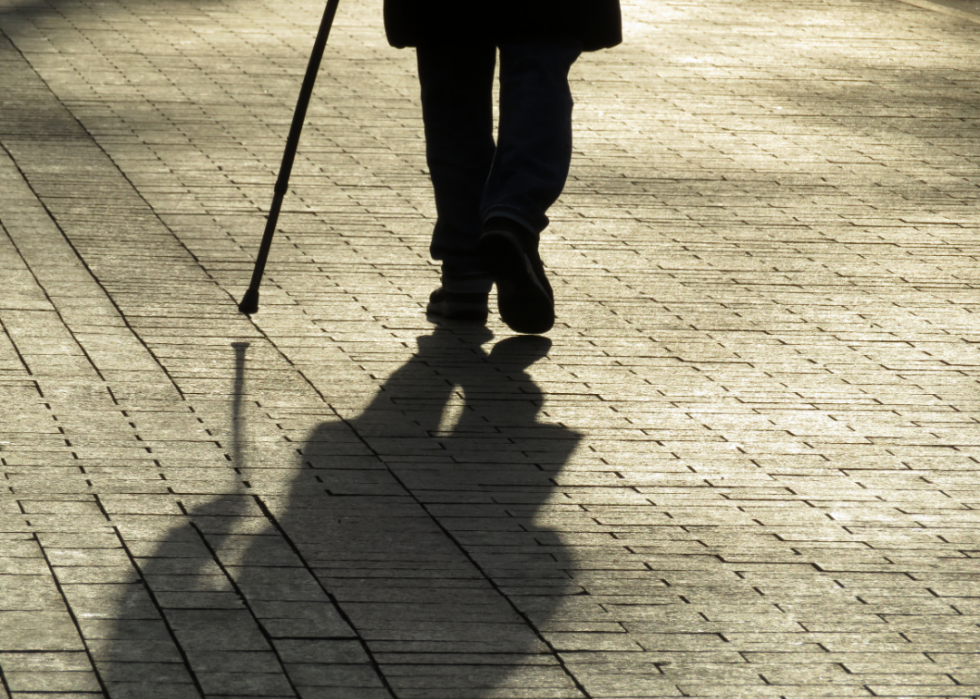
#12. Nonparalytic orthopedic impairment
- Cases with relief: 3,989 (19.9% of closed cases)
- Monetary benefits: 2,939 (14.7% of closed cases)
- Meritorious cases: 473 (2.4% of closed cases)
- Closed cases: 20,039 (87.1% of all cases)
Nonparalytic orthopedic impairments can cause chronic pain and, sometimes, the loss of the ability to move a part of the body. Regardless, an employee maintains the right to request reasonable accommodation to help with job functions. From 2005 to 2010, 6.9% of ADA charges were specific to nonparalytic orthopedic impairments.

#11. Orthopedic / structural back impairment
- Cases with relief: 4,447 (20.6% of closed cases)
- Monetary benefits: 3,097 (14.3% of closed cases)
- Meritorious cases: 482 (2.2% of closed cases)
- Closed cases: 21,634 (87.4% of all cases)
Back conditions may be considered disabilities in the workplace under discrimination law. Employers have the right to inquire about medical information when performance problems come into question. However, it is illegal to fire, disqualify, or perform other discriminatory acts towards that employee, as they have the right to apply to their desired position. When considering the position, it is important to keep in mind the job's limitations for safety reasons, while understanding that the disability is protected under the ADA.

#10. Race-White
- Cases with relief: 4,756 (13.1% of closed cases)
- Monetary benefits: 3,362 (9.2% of closed cases)
- Meritorious cases: 386 (1.1% of closed cases)
- Closed cases: 36,357 (89.3% of all cases)
While statistically, white Americans disproportionately outnumber their African American, Latino, and Asian counterparts when it comes to obtaining jobs and job treatment, to deny employment or benefits, fire, or harass an employee for being white is illegal. Should an employee feel as though their rights are being violated, they can report this under federal law.

#9. Color
- Cases with relief: 4,872 (16.1% of closed cases)
- Monetary benefits: 3,173 (10.5% of closed cases)
- Meritorious cases: 345 (1.1% of closed cases)
- Closed cases: 30,270 (86.7% of all cases)
Discrimination based on skin color, also known as colorism or shadeism, is illegal. Title VII prohibits both intentional discrimination and microaggressions. Darker-skinned applicants and employees tend to face these discriminations more so than lighter-skinned applicants and employees, despite their race or heritage.

#8. Regarded as disabled
- Cases with relief: 5,797 (21.6% of closed cases)
- Monetary benefits: 4,430 (16.5% of closed cases)
- Meritorious cases: 923 (3.4% of closed cases)
- Closed cases: 26,776 (87.4% of all cases)
Regarded as disabled is different from actually having a disability or record of disability. In this case, the impairment does not have to limit major life activities. An employee is protected under the ADA from discrimination because of a perceived impairment. However, regarded as disabled can only be used to prove discrimination, not prove that an employer failed to make reasonable accommodations for an employee.

#7. National origin-Hispanic
- Cases with relief: 6,020 (16.9% of closed cases)
- Monetary benefits: 4,098 (11.5% of closed cases)
- Meritorious cases: 548 (1.5% of closed cases)
- Closed cases: 35,535 (87.0% of all cases)
Not only are people who identify as Hispanic vastly underrepresented in many areas of study, but the reality for the working Latinx community is that they also face discrimination in the workplace in high numbers. About half of American Hispanics say they have experienced discrimination, according to the Pew Research Center.

#6. Sex-Pregnancy
- Cases with relief: 8,663 (24.3% of closed cases)
- Monetary benefits: 6,227 (17.5% of closed cases)
- Meritorious cases: 944 (2.6% of closed cases)
- Closed cases: 35,676 (87.0% of all cases)
The Pregnancy Discrimination Act prohibits all forms of employment discrimination toward pregnant people. Almost 6,000 federal pregnancy discrimination charges were filed in 2011 through the EEOC and its counterparts in the state and local Fair Employment Practices Agencies. Pregnancy discrimination can include employer's refusal to give pregnant people in laborious jobs "light duty," which can and does result in miscarriages, and denial of promotion or firing because of being pregnant.

#5. Sex-Male
- Cases with relief: 9,437 (15.5% of closed cases)
- Monetary benefits: 6,416 (10.6% of closed cases)
- Meritorious cases: 829 (1.4% of closed cases)
- Closed cases: 60,725 (89.3% of all cases)
The 2012 American National Election Study reported almost 10% of Republican men felt they experienced “a great deal” or “a lot” of discrimination. That figure rose to 18% In 2016. Title VII of the Civil Rights Act prohibits the unequal treatment of all based on their sex or gender—the laws do not discriminate. Male gender discrimination looks like same-sex sexual harassment, hostile environments from women-dominated industries, sexual advances or harassment from women superiors, denied paternity leave, and more. These, and many other examples, break federal law and can be reported.

#4. Age
- Cases with relief: 33,799 (16.5% of closed cases)
- Monetary benefits: 22,661 (11.0% of closed cases)
- Meritorious cases: 2,989 (1.5% of closed cases)
- Closed cases: 205,352 (88.7% of all cases)
People young and old experience ageism in the workplace. Employers judge their ability to perform the job duties because of their age, instead of their experience or overall capabilities. The Age Discrimination in Employment Act works in favor of those 40 years old and older who are discriminated against. It does not protect workers under 40 years old.

#3. Sex-Female
- Cases with relief: 34,860 (19.9% of closed cases)
- Monetary benefits: 24,603 (14.0% of closed cases)
- Meritorious cases: 3,840 (2.2% of closed cases)
- Closed cases: 175,415 (86.1% of all cases)
Many cases centered around female discrimination have made their way to the nation's courts and all the way to the Supreme Court, where Justice Ruth Bader Ginsburg fought for gender equality in federal laws. Companies including Nike, Walmart, and Google have faced cases surrounding women’s rights in the workplace. It is against the law for a woman to be declined a position, pay, benefits, and other work-related promotions because of the sole fact that she is a woman.

#2. Race-Black / African American
- Cases with relief: 37,244 (15.1% of closed cases)
- Monetary benefits: 26,505 (10.8% of closed cases)
- Meritorious cases: 3,095 (1.3% of closed cases)
- Closed cases: 245,966 (88.1% of all cases)
Facing some of the highest numbers of workplace discrimination, people of Black/African American descent experience high rates of microaggressions, harassment, and discrimination based on their skin color and heritage. Black workers, who are 13% of the U.S. workforce, made up 26% of all claims with the EEOC for racial discrimination.

#1. Retaliation
- Cases with relief: 61,607 (17.2% of closed cases)
- Monetary benefits: 44,295 (12.4% of closed cases)
- Meritorious cases: 6,700 (1.9% of closed cases)
- Closed cases: 357,958 (86.8% of all cases)
Throughout this list, it's been statistically shown how discrimination cases range across gender, race, disabilities, nationalities, and more. These are all reasons to report discrimination in the workplace. Should an employer retaliate in any way against an employee for reporting discrimination or any unfair/unlawful treatment, the employer would be breaking federal law. Retaliation can be obvious, like verbal abuse, or more insidious, like changing a worker's schedule to make their job more onerous.



